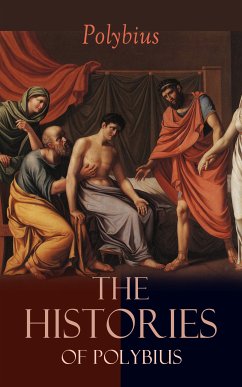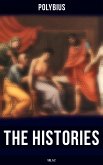The Histories is a multi-volume work written by Polybius who was taken as a hostage to Rome after the Roman defeat of the Achaean League, and there he began to write an account of the rise of Rome to a world power. Polybius' Histories begin in the year 264 BC and end in 146 BC. He is primarily concerned with the 53 years in which Ancient Rome became a dominant world power. This period, from 220-167 BC, saw Rome subjugate Carthage and gain control over Hellenistic Greece. Volume I of the Histories contains the first nine Books. Books I through V cover the affairs of important states at the time (Ptolemaic Egypt, Hellenistic Greece, Macedon) and deal extensively with the First and Second Punic Wars. In Book VI he describes the Roman Constitution and outlines the powers of the consuls, Senate and People. He concludes that the success of the Roman state was based on their mixed constitution, which combined elements of a democracy, aristocracy, and monarchy.
Dieser Download kann aus rechtlichen Gründen nur mit Rechnungsadresse in A, B, BG, CY, CZ, D, DK, EW, E, FIN, F, GR, H, IRL, I, LT, L, LR, M, NL, PL, P, R, S, SLO, SK ausgeliefert werden.
Hinweis: Dieser Artikel kann nur an eine deutsche Lieferadresse ausgeliefert werden.









